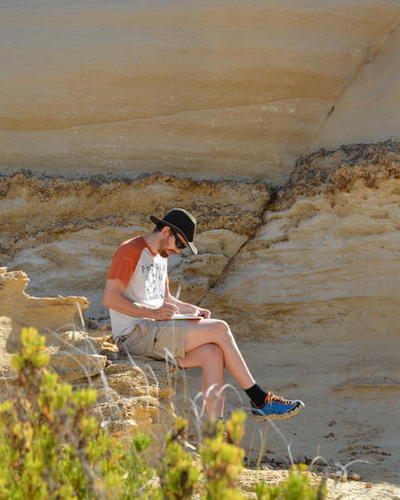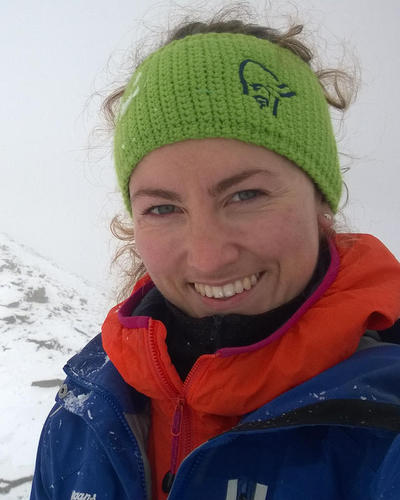Energy Transition and Sustainability for the finance industry
How can we slow down climate change through conversion to renewable and more sustainable energy sources? How does the banking and finance industry meet the green transition? Online course through 10-12 weeks, adressing the most the most important interdisciplinary challenges.

Main content
Energy transition and conversion to renewable energy resources is an important research field for the University of Bergen, based on the UN's 7th sustainability goal: Ensuring access to reliable, sustainable and modern energy at an affordable price.
Climate and energy transitions intervene in all areas of society and raise a number of challenges across climate science, technology, psychology, law and economics. The banking and finance industry is in contact with most aspects of our changing society and has an important role. The University of Bergen has therefore developed the online course SDG 617 Energy Transition and Sustainability for the finance industry. The course is aimed at employees in banking and the finance industry, and is developed i cooperation with our local partners: Sparebank1 SMN, Sparebanken Sogn og Fjordane, Sparebanken Vest and Studiesenter Kysten.
This course is further developed from the original course SDG 607 Energy Transition, which we have run more than 10 times with appr. 1000 participants in total since 2021.
We have 100 study places in this first course run. Employees from our partners will be given the opportunity to register first, and we will thereafter open for applications from other employees in the banking and finance industry and others. Those who are employed in the banking and finance industry will be prioritized (see admission- and priority criterias below).
About the course
The new course is 100% online and runs through a period of 10-12 weeks. All teaching will be in English, through UiBs learning portal called Mitt UiB.
The course starts at 9 December and runs until the end of March 2025. Next course runs will be autumn 2025, 2026 and 2027. The course is developed with financial support from Norwegian Directorate for Higher Education and Skills (HK Dir) and there is therefore no study fee for Norwegian citizens or EU/Switzerland citizens.
A new paragraph in the Norwegian higher education act requires however that applicants from countries outside the European Economic Area and Switzerland will have to pay full tuition fee if they wish to be enrolled into a course or study program in Norwegian higher education institutions, unless the applicant fulfil one of the exceptions listed here.
This rule also applies for online courses and parttime courses, including this course in question.
The study fee for applicants outside EEA/Switzerland for 2025 is: NOK 5000,-
All admitted students must also pay a personal semester fee of NOK 650,-, regardless of citizenship.
Academic content
The course has a interdiciplinary profile, with perspectives from diciplines like climate science, economics, biology, social sciences, physics, earth science, law and ethics.
The course will provide an introduction to energy transition and renewable energy resources and an understanding of the most important interdisciplinary challenges:
- What are the role for the banking and finance industry in the green transition?
- What are the most important drivers that motivate energy transition?
- What technological possibilities do we have?
- What are the advantages and disadvantages of different sustainable energy resources?
- What are the main challenges and what are the possible consequences?
- How can we supervise customers in banking and finance to choose sustainable products and solutions?
The first part of the course focuses on the role of the banking and finance industry in the green transition, drivers and motivational factors for the transition to a low-carbon society, such as climate change and the need for clean and sustainable energy supply globally.
The second part of the course focuses on sustainable/renewable energy resources, such as geothermal energy, offshore wind, solar power, hydropower, mineral extraction, as well as the storage, capture and utilization of CO2.
The last part will deal with energy transition and society and specific questions related to sustainability and the green transition that are spesific for the banking and finance industry, like EU taxonomy, climate risks, sustainability requirements and reporting, green loan products, EU requirements for housing, etc.
How is the course organized?
The teaching consists of 24 online lessons of 2 hours each, which you can follow when it suits you. These lessons are available on the course page on our learning platform Mitt UiB, which you will get access to when you are admitted as student on the course.
In addition, there will be 3 joint teaching sessions in real time, via Zoom, in the afternoon/evening (GMT/Norwegian time).
The course ends with a digital multiple-choice exam that you complete from home, within the exam periods specified below.
Teaching plan December 2024 - March 2025:
Study start: 9 December
1. teaching session : 9 January
2. teaching session: 4 February
4. teaching session: 5 March
Exam period: 24 - 31 March
Admission requirements
There are no need of previous knowledge of any of the fields in question. You will get the necessary introduction to the relevant field during the course.
1) Are you under 25 years of age? You must attach sufficient documentation of general study skills when you register your application. General study skills must be documented with a diploma/transcript from upper secondary school.
2) Are you above 25 years of age? It is not necessary to document either education nor vocational experience.
Priority criterias
We have 100 study places and applicants will be prioritized in this order:
1) Applicants from our partners
2) Other applicants from the banking and finance industry
3) Others
We therefore kindly ask you to tick off whether you are employed in the banking and finance sector, and submit the name of your employer and your current position when register your application.

